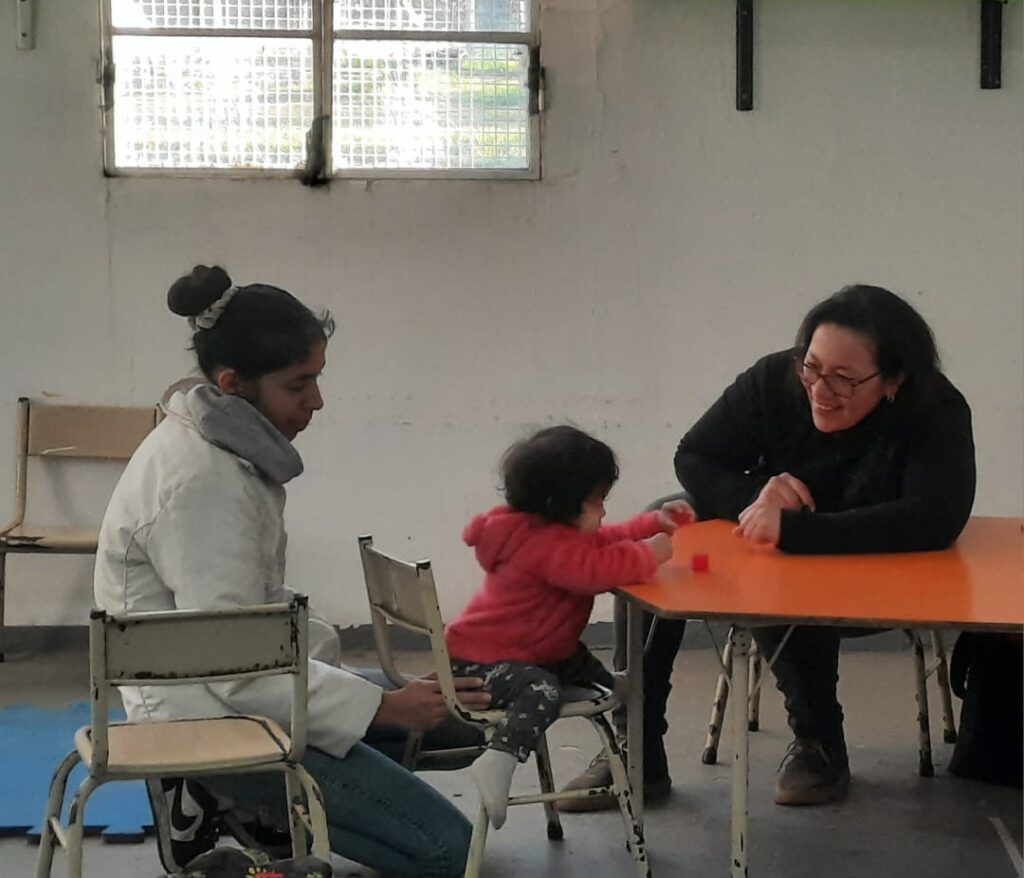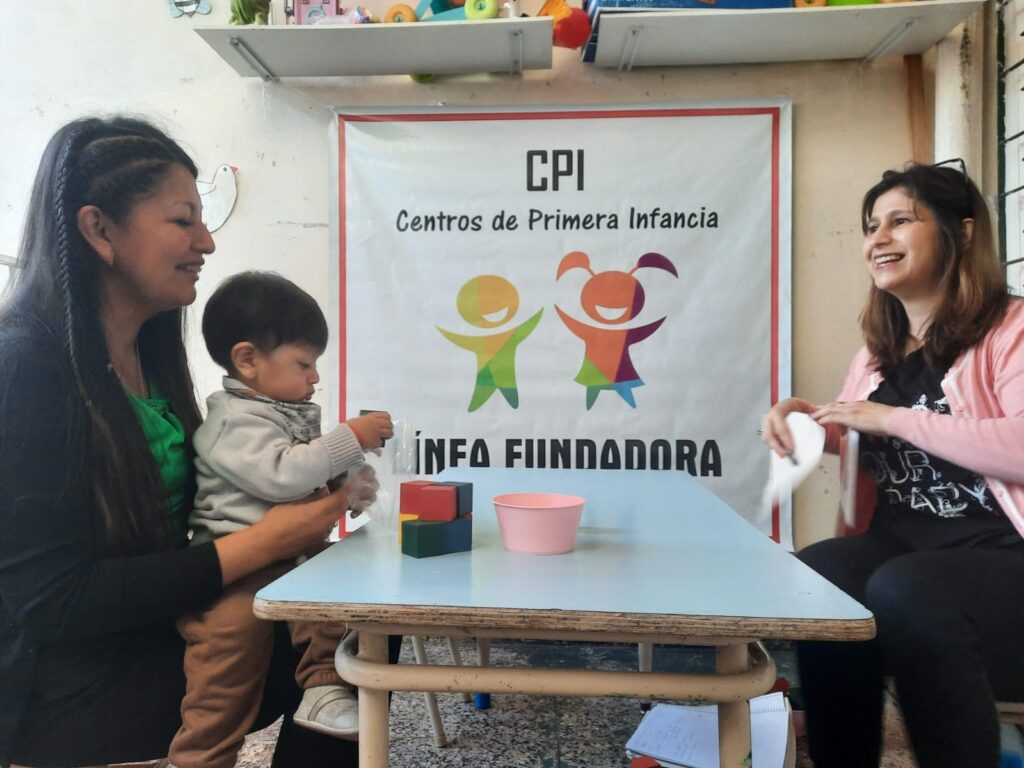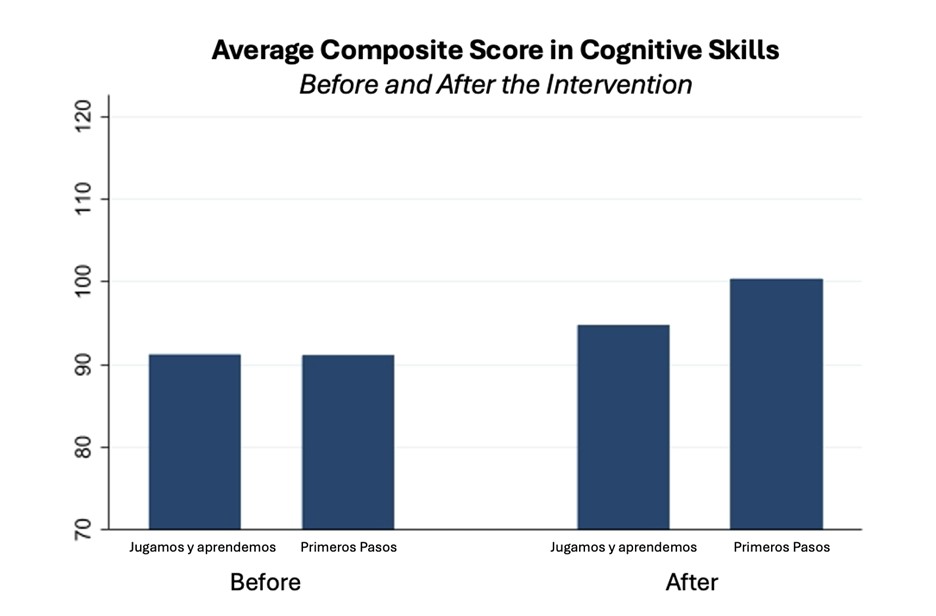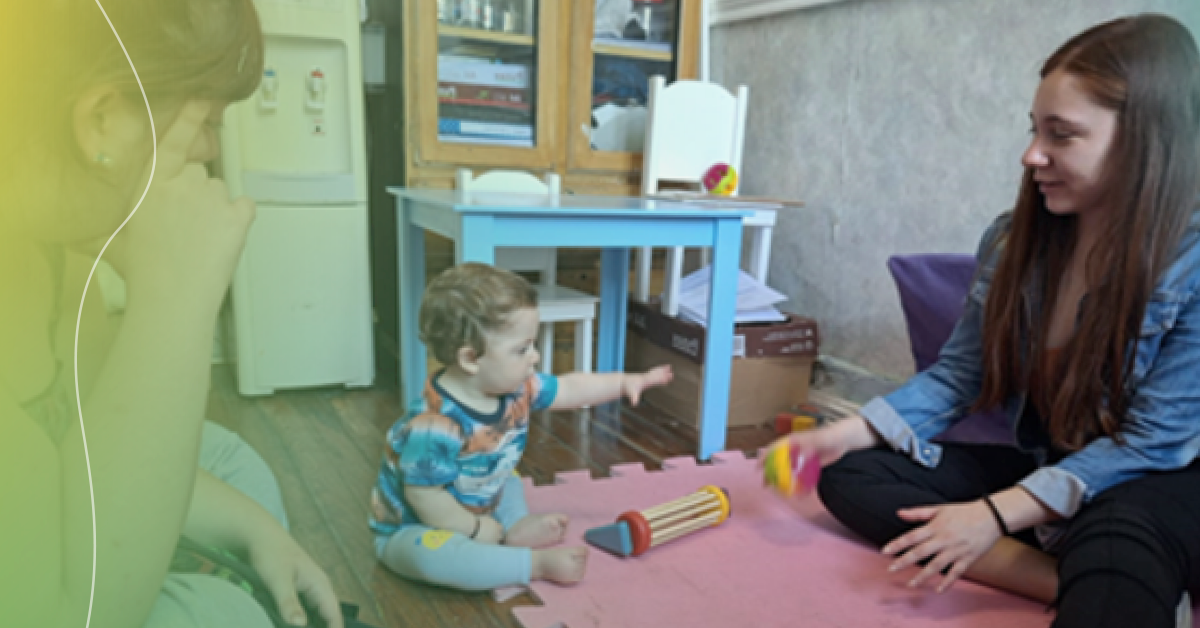What happens when a family receives concrete tools to support their child’s development from the earliest months of life? And what if that support comes right on time—just as the child begins to show signs of developmental delay?
In Buenos Aires, Argentina, the Primeros Pasos program set out to answer these questions with promising results. Inspired by Reach Up, an intervention developed in Jamaica and validated in several countries, the program aimed to strengthen parents’ and caregivers’ ability to promote their children’s development through responsive interactions and play. In a context where an estimated 43% of children under five in low- and middle-income countries are at risk of not reaching their full potential, effective interventions have never been more urgent.
Identifying Delays and Acting Early
In Latin America and the Caribbean, millions of children face conditions that limit their developmental potential. The evidence is clear: failing to intervene early in response to signs of delay can have lasting effects on learning, health, and future opportunities.

Primeros Pasos was launched in Argentina in 2022 at Hospital Alemán. With support from the IDB and the Government of the City of Buenos Aires, the program expanded in 2024 to the city’s Early Childhood Centers (Centros de Primera Infancia, or CPI). The intervention focused on children aged 6 to 24 months showing signs of developmental delay.
To identify this population, the hospital team first conducted a screening of children’s developmental status, followed by a more in-depth evaluation of those showing potential risks. Language development emerged as the most significant area of challenge among the children assessed. Additionally, during this phase, families completed a questionnaire to gather information about the availability of books and toys at home, as well as the frequency and type of activities they shared with an adult.
Results That Show the Power of Early Play

The children—randomly selected to participate in the program—attended weekly play sessions for three months, together with a caregiver and a trained facilitator. These facilitators were advanced Psychology or Educational Psychology students completing their practicum, and they received training and supervision from the Hospital Alemán team. All activities, games, and materials followed a structured curriculum tailored to Argentina’s linguistic and cultural context. Children who were not selected for Primeros Pasos received activity packages developed by researchers at Oxford University and Oxford Brookes University as part of the “Jugamos y aprendemos” program, which included suggestions and materials for play-based activities at home.
At the end of the intervention, the children were re-evaluated using the Bayley-III Scale of Infant and Toddler Development. The results were encouraging: the data showed that Primeros Pasos led to significant improvements in cognitive, language, and motor skills, along with increased caregiver engagement in stimulation activities.
As an example, the figure below shows the program’s impact on children’s cognitive skills, comparing those who participated in Primeros Pasos with those who only received the activity packages.

Why Early Investment in Child Development Matters
The implementation of Primeros Pasos adds to the growing body of evidence showing that early interventions based on play and stimulation can produce positive developmental outcomes. By focusing on children with delays in reaching developmental milestones, the program helps close early gaps—preventing them from widening over time, as often happens without intervention. If you would like to learn more about this experience and access the full evaluation results, a detailed publication will be available soon. Stay tuned for updates!


Leave a Reply